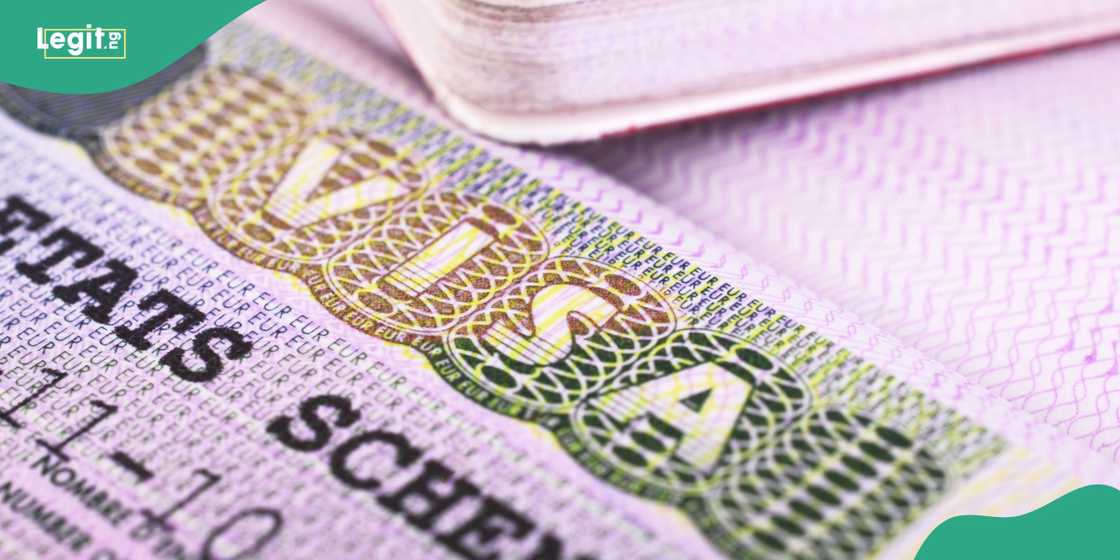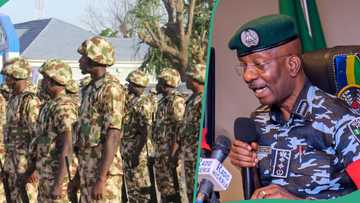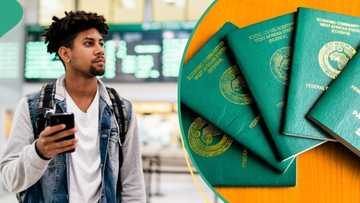US Travel Advisory Warns Citizens Against Travel to Nigeria Over Security Risks, Healthcare Gaps
- The United States has issued a renewed travel advisory urging citizens to reconsider travel to Nigeria due to rising threats of terrorism, violent crime, and inadequate healthcare services
- Eighteen states were designated high-risk zones, with warnings against visiting regions plagued by kidnapping, armed gangs, and civil unrest
- The advisory also raised alarms over Nigeria’s under-equipped medical infrastructure and unreliable access to basic medications and emergency services
The United States government has issued a renewed travel advisory cautioning its citizens against travel to Nigeria, citing escalating security challenges and limited access to healthcare services.
The advisory, published on the US Mission Nigeria website as part of the country’s broader security review of travel to Africa, placed Nigeria among a list of twelve African nations flagged as high-risk destinations.

Source: Twitter
Advisory places Nigeria in high-risk category
According to the advisory, Nigeria was classified under Level Three, “Reconsider Travel”, indicating severe threats to personal safety. The United States highlighted concerns including terrorism, violent crime, kidnapping, civil unrest, and the inconsistent availability of healthcare across the country.
“All locations carry significant security risks,” the statement read, underscoring the breadth of concern across Nigeria. The advisory warned that violent crimes such as armed robbery, carjacking, assault, and rape were commonplace, alongside frequent incidents of kidnapping for ransom. The US government noted that gangs often targeted dual citizens and US nationals perceived as wealthy.
Nigeria’s health system also a concern
In addition to security challenges, the advisory spotlighted critical shortcomings in Nigeria’s healthcare infrastructure. US authorities stated that medical facilities across the country were generally not up to American or European standards and cautioned that vital medications were often unavailable.
The advisory stressed:
“U.S. citizens should not expect the same level of health care to be available in Nigeria as they do in the United States. Nigerian medical facilities are generally not equipped to U.S. or European standards. Many medicines are not available. This includes common medications for diabetes or asthma.”
Visitors were urged to arrive with a full supply of over-the-counter and prescription drugs and ensure their vaccinations were updated for diseases such as yellow fever, hepatitis, and malaria. The advisory further warned against counterfeit pharmaceuticals and the unreliability of emergency services, including ambulances, blood supply, and paramedics.
Regional risk breakdown
The US government designated 18 Nigerian states as posing severe security risks, advising citizens to avoid travel to those regions entirely. States listed due to terrorism and kidnapping included Borno, Yobe, Kogi, and northern Adamawa. Bauchi, Gombe, Kaduna, Kano, Katsina, Sokoto, and Zamfara were flagged over high rates of kidnapping. Meanwhile, Abia, Anambra, Bayelsa, Delta, Enugu, Imo, and Rivers (excluding Port Harcourt) were noted for crime, kidnapping, and armed gang activity.
The advisory reported that terrorist groups were actively plotting attacks and often operated in collaboration with local gangs. Likely targets included “shopping centres and malls, markets, hotels, places of worship, restaurants and bars, schools, government buildings, transportation hubs, and public places where crowds gather.”
It added that violent clashes between farmers and herders remained a persistent issue in Nigeria’s rural communities.
Broader regional concerns across Africa
Nigeria was not the only nation flagged in the updated travel advisory. The United States also identified Somalia, Libya, Burkina Faso, South Sudan, Democratic Republic of Congo, Uganda, Burundi, Mauritania, Guinea-Bissau, Niger, and Chad as countries presenting major risks for travellers.
The US Mission concluded its statement by urging American citizens planning travel to Nigeria to acquire comprehensive traveller’s insurance, including medical evacuation cover, before departure.
“We strongly recommend getting traveller’s insurance, including medical evacuation insurance, before travelling,” the advisory stated.

Source: Getty Images
Tinubu breaks silence after US warned citizens
Legit.ng earlier reported that the federal government has officially responded to the recent security advisory issued by the United States Embassy in Nigeria, which warned American citizens to avoid non-official visits to military sites and other government facilities within Abuja.
Recall that on Monday, June 23, the United States Mission in Nigeria issued a fresh advisory that barred all embassy staff and their families from travelling for any non-official purpose.
Specifically, officials and non-officials were asked to avoid Nigerian military installations or other government facilities in Abuja.
Proofreading by James Ojo, copy editor at Legit.ng.
Source: Legit.ng





